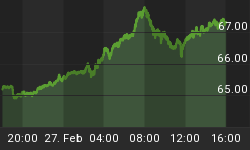While lockdowns initiated in response to the pandemic are expected to result in an estimated 5% drop in greenhouse gas emissions this year, according to the UN Conference on Trade and Development, other measures to contain the virus such as hygiene practices and quarantining have led to a rise in the volume of single-use plastic waste.
An increase in the manufacture of PPE, coupled with the temporary shuttering of recycling facilities and reduced operational capabilities, have set back global efforts to reduce the usage of plastic.
In China, where the first Covid-19 case was reported, the production of face masks reached 116m units per day at the end of February – up from 20m prior to the outbreak. Meanwhile, according to business consulting firm Grand View Research, global sales of disposable face masks are set to increase from about $800m in 2019 to $166bn in 2020.
Single-use face masks are made from polymers such as polypropylene, which has been identified as a significant source of plastic pollution.
Prior to the pandemic, it was estimated that 8m tonnes of plastic waste ended up in the ocean every year. Marine pollution is particularly pronounced in South-east Asia, which is home to four of the world’s top ocean polluters.
In Thailand, plastic waste increased from 5500 tonnes per day before the pandemic to 6300 tonnes per day as of mid-May. This 15% rise occurred despite the introduction of a ban on plastic bags at the beginning of the year. In Bangkok alone, the average amount of plastic waste rose from 2115 tonnes per day in 2019 to 3432 tonnes per day between January and April.
Globally, the spillover effect of plastic waste – for example on tourism, fisheries and maritime transport – could cost an estimated $40bn, according to the UN Environment Programme.
Delivery services compound plastic problem
Covid-19 has also necessitated the use of delivery services during the resulting lockdowns, which led to an increase in plastic packaging and single-use utensils.
In South-east Asia, for example, multi-service apps such as the Singapore-based Grab and Indonesia’s Gojek experienced a boom on their food delivery platforms, with the former reporting 400% growth in the week after lockdown commenced.
Based on a survey published in June by students from the National University of Singapore, Singaporean households were expected to have generated 1334 tonnes of plastic waste from takeout packaging and food delivery during the eight-week lockdown.
More generally, the accelerated shift to e-commerce is contributing to a rise in the volume of packaging. According to a report by the World Economic Forum and Ellen MacArthur Foundation published in 2016, packaging comprises 26% of all plastics production, yet only 14% of that is recycled.
Despite the overall economic downturn, e-commerce is forecast to grow by almost 20% this year and the global plastic packaging market is expected to expand at a compound annual growth rate of 5.5%, from $909.2bn in 2019 to over $1trn by 2021, complicating the challenge of overcoming plastic pollution.
Opportunities in recycled protective gear
While single-use plastics are likely to prevail given their perceived benefits in the current circumstances, efforts are being made in emerging markets to offer more sustainable alternatives or improve recycling efforts.
In Accra, Ghana, local authorities launched the #WearYourMask campaign in mid-April. As part of the initiative, Mohammed Adjei Sowah, the metropolitan chief executive of Accra, plans to distribute 10,000 locally made face masks, 200 of which were produced by Trashy Bags, a non-governmental organisation that recycles water bottles and ice cream sachets.
Meanwhile, in Tanzania, Zaidi Recyclers, which processed paper waste before the pandemic, is now producing face shields made from recycled plastic bottles.
Elsewhere, Thai design company Qualy is turning unused fishing nets into Covid-19 face shields and disinfectant bottles. Thosaphol Suppaetheekuwat, Qualy’s marketing manager, said that demand was coming from Europe, Japan, Singapore, South Korea, Hong Kong and Taiwan. More than 1.3 tonnes of used nets have been collected since the pilot phase in May, and there are plans to expand the project to all seaside provinces in the country by the year’s end.
Aside from recycling strictly for the purpose of manufacturing face masks and bottles, a Thai initiative launched prior to the pandemic has demonstrated an alternative use for plastic waste.
In early October 2018 Siam Cement Group (SCG) and Dow Thailand Group unveiled a 220-metre road made from recycled plastics, located inside the Rayong Industrial Estate where SCG’s petrochemical arm SCG Chemicals is based.
Plastic is collected and cleaned, and then crushed into smaller pieces before it is mixed with asphalt. According to Chulalongkorn University's Faculty of Engineering, the recycled road is 15-30% more stable than asphalt concrete and, according to SCG, more resistant to water erosion.
It is hoped that the project will help to build a circular economy, which Cholanat Yanaranop, president of SCG Chemicals, asserts is a model for business sustainability. Indeed, the company’s decision to shift its focus away from commodities such as single-use plastics is based on how environmental concerns affect its bottom line and long-term outlook, Cholanat told local media in December 2018.
By Oxford Business Group
More Top Reads From Safehaven.com:
















